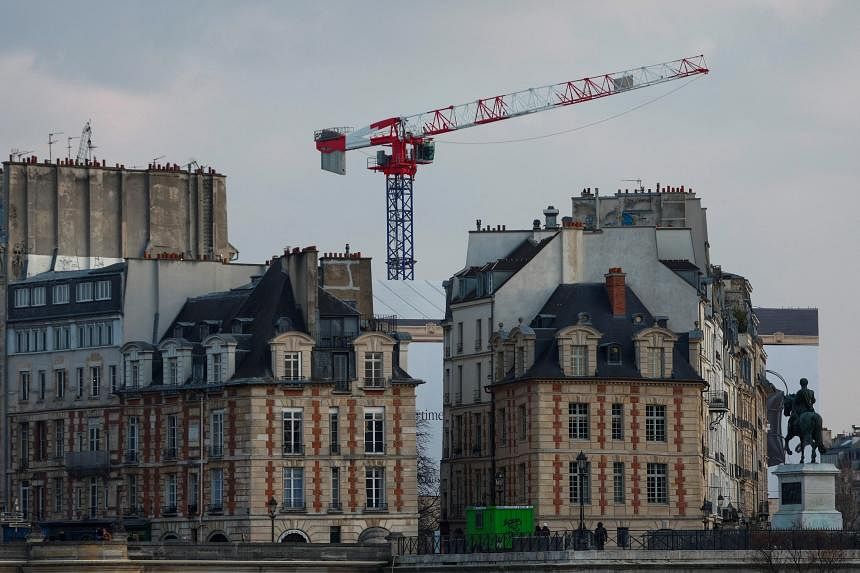PARIS - France warned on March 7 that the world’s construction sector was not on track to decarbonise by 2050 as it co-hosts with the United Nations Environment Programme the first ever conference aimed at reducing the industry’s impact on climate change.
Some 1,800 government officials, investors and industry representatives from 50 countries are gathering in Paris for the Buildings and Climate Global Forum, which ends on March 8.
The meeting is also aimed at adapting buildings to withstand storms, floods and heatwaves and other extreme weather, which are becoming more frequent and intense due to climate change.
The stakes are high as global temperatures keep rising, with February marking the ninth straight month of historic high temperatures across the planet, according to Europe’s Copernicus Climate Change Service.
The building and construction sector’s global greenhouse gas emissions are continuing to rise, the French Ecological Transition Ministry said.
“The sector is not on the right path to decarbonise by 2050,” the ministry said.
“It is therefore crucial to fundamentally rethink the way we build and use our buildings in order to ensure that national climate policies succeed and the Paris Agreement on climate is respected,” it said.
The building and construction sector is responsible for one-fifth of global greenhouse gas emissions. It also accounts of 34 per cent of energy demand and half of global consumption of raw materials, according to the forum.
The UN expects the global building floor area to double by 2060.
It says the world must reach net-zero emissions by 2050 in order to meet the Paris accord’s ambitious goal of limiting global warming to 1.5 deg C above pre-industrial levels.
Coming on the heels of the UN’s COP28 climate summit in Dubai, the Paris forum in Paris is expected to produce a joint statement that has been negotiated for months.
Officials from the United States and China, the world’s top economies and top emitters of greenhouse gases, are attending the forum.
The event also brings together architects, engineers and property developers, among others, along with international organisations.
“We must both decarbonise and adapt” the sector, said Ms Julie Prigent of the French Environment and Energy Management Agency.
While using local and bio-sourced materials can reduce a building’s emissions and energy costs, “it is sometimes not enough”, she said.
“Buildings must also be able to withstand climatic risks, which are increasing”, and adapt to avoid having to be demolished, and thus emit twice as much carbon dioxide, she specifies.
Hemp and raw earth
Cement companies are attending the forum along with research centres such as CRAterre, based in the French city of Grenoble, which promotes the use of raw earth, a compound of clay and other natural mineral.
Since the earthquake that levelled Haiti in 2010, some 15,000 construction projects have been carried out based on CRAterre’s recommendations in wood frames and limestone filling, said CRAterre architect-researcher Philippe Garnier.
The Federation of International Hemp Organisations (Fiho) shared a stand with the BBCA association of construction and real estate professionals at the forum.
“We clearly feel that there is growing international awareness of the impact of buildings on global warming,” Fiho secretary-general Frederic Vallier told AFP.
“Hemp grew around the world until World War II and has since been replaced by nylon and synthetic materials, but the world is rediscovering its extraordinary possibilities for agriculture and decarbonising construction,” he said. AFP

